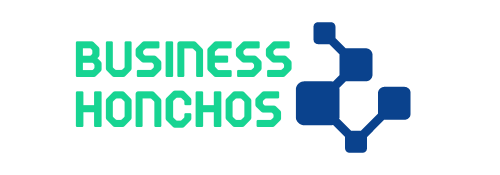Google Search Console (GSC) remains one of the most powerful tools for SEO professionals and website owners to monitor, maintain, and improve their website’s presence in Google search results. With the advancements in search engine algorithms and new technologies in 2024, mastering Google Search Console can significantly boost your website’s rankings and organic traffic.
This guide will help you navigate the latest features of Google Search Console in 2024, How to use Google Search Console and provide actionable tips for using it to improve your website’s performance.
1. Understanding Google Search Console: An Overview
Google Search Console is a free tool that provides insights into how Google indexes your site, the performance of your content in search results, and the health of your website. It helps you monitor:
- Search traffic: Understand which keywords are driving traffic to your site.
- Crawl errors: Detect and fix issues that prevent Google from indexing your pages.
- Mobile usability: Ensure that your website performs well on mobile devices.
Whether you’re new to SEO or a seasoned expert, Google Search Console should be your go-to tool for improving your site’s visibility and rankings.
2. Setting Up and Verifying Your Website on Google Search Console
Before you start using Google Search Console, you need to verify your website. In 2024, Google continues to offer multiple verification methods:
Also Read:- Web design services in Atlanta for small business
- HTML file upload: Upload a Google-provided HTML file to your website’s root directory.
- HTML tag: Add a meta tag to your site’s homepage.
- Google Analytics: Use an existing Google Analytics account for verification.
Once verified, you can access valuable data about your site’s search performance, giving you the foundation to optimize for higher rankings.
3. Analyzing Your Search Performance
The Performance Report is one of the most important features in Google Search Console. In 2024, the Performance Report provides detailed insights into your website’s:
- Impressions: How often your site appears in search results.
- Clicks: The number of clicks your pages receive.
- Average position: Improve your website ranking in SERPs for specific keywords.
- Click-through rate (CTR): The percentage of users who click on your pages after seeing them in search results.
Tips for improving rankings:
- Optimize for high-CTR keywords: Identify keywords with high impressions but low CTR, and update your meta descriptions and titles to make them more engaging.
- Target high-volume keywords: Use Google Search Console to find high-search-volume keywords that your website ranks for, then optimize your content further to improve ranking positions.
4. Using the Core Web Vitals Report
In 2024, Core Web Vitals continue to play a major role in determining your site’s ranking. Google Search Console provides a dedicated Core Web Vitals Report that helps you track your site’s performance based on three key metrics:
- Largest Contentful Paint (LCP): Measures how quickly the largest content element loads.
- First Input Delay (FID): Measures the time it takes for your site to respond to a user’s first interaction.
- Cumulative Layout Shift (CLS): Tracks visual stability by measuring unexpected shifts in page layout.
Improving Core Web Vitals:
- Optimize images: Compress and use next-gen formats like WebP to reduce loading times.
- Improve server response times: Use faster hosting solutions and implement caching.
- Minimize layout shifts: Set specific dimensions for all media elements to prevent content from shifting unexpectedly.
5. Fixing Indexing Issues with the Coverage Report
The Coverage Report in Google Search Console identifies issues that may prevent Google from indexing certain pages of your website. In 2024, it’s more important than ever to ensure that all relevant pages are indexed, as Google continuously improves its indexing algorithms.
Common indexing issues:
- Submitted URL not found (404): Pages that are missing or deleted but are still included in your sitemap.
- Blocked by robots.txt: Pages that are unintentionally blocked from being crawled by search engines.
- Server errors (5xx): Temporary server issues preventing Google from accessing your site.
How to fix these issues:
- Update or remove 404 pages: Redirect missing pages to relevant content or remove them from your sitemap.
- Review robots.txt: Ensure that important pages are not blocked from Google’s crawlers.
- Check server logs: Resolve any server-side issues to prevent crawling errors.
6. Optimizing for Mobile Usability
In 2024, mobile optimization is critical, especially with Google’s mobile-first indexing. Google Search Console’s Mobile Usability Report helps you identify issues that may affect the mobile experience on your site.
Common mobile issues:
- Clickable elements too close together: Ensure that buttons and links are easy to click on mobile screens.
- Content wider than screen: Make sure your site’s content is responsive and adjusts to different screen sizes.
- Text too small to read: Increase font size to ensure readability on smaller devices.
Mobile optimization tips:
- Use responsive design: Ensure your website adapts to different screen sizes and orientations.
- Prioritize speed: Reduce loading times by optimizing images and minifying CSS and JavaScript.
- Test with Google’s Mobile-Friendly Test: Regularly check your site using this tool to identify potential issues.
7. Submitting and Optimizing Your Sitemap
Your sitemap is a critical element in helping Google understand and crawl your website. Submitting a sitemap through Google Search Console ensures that all important pages are indexed.
How to optimize your sitemap:
- Include all essential pages: Ensure that your sitemap only includes relevant and high-quality pages.
- Update regularly: Keep your sitemap updated as you add new content or make changes to your site.
- Use XML format: Ensure your sitemap is in the proper XML format and error-free for optimal crawling.
8. Tracking and Resolving Security Issues
Security is a top priority in 2024, and Google Search Console provides alerts for any security issues on your website, such as malware or phishing attacks. The Security Issues Report helps you identify vulnerabilities that could negatively impact your SEO performance.
How to address security issues:
- Install an SSL certificate: Ensure your website uses HTTPS, as this is a ranking factor and adds a layer of security.
- Regularly update your CMS: Keep your content management system and plugins updated to prevent vulnerabilities.
- Monitor for malware: Use security plugins and services to scan for malware regularly and remove any harmful content.
Conclusion
Google Search Console is a powerful tool that can help you improve your website’s Google rankings in 2024 by offering insights into search performance, user experience, and technical issues. By understanding how to use its various features and implementing the tips outlined in this guide, you can stay ahead of the latest SEO trends and ensure your website ranks higher in search results.
Mastering Google Search Console is essential for any SEO strategy, and with the new technologies emerging in 2024, it’s more important than ever to make the most of this invaluable tool.




